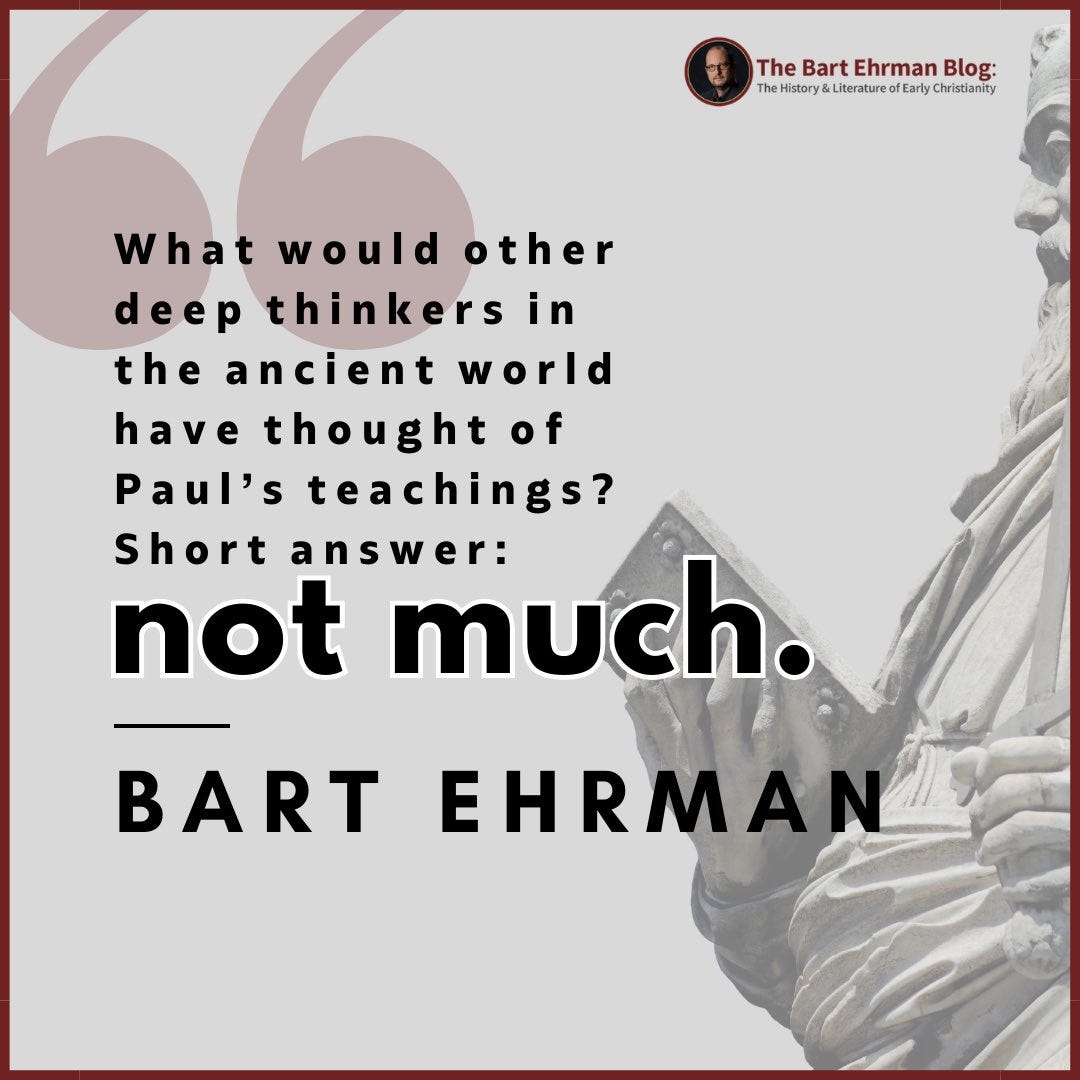The quote from Bart Ehrman above is quite true, but it is not the whole story.
Paul was quite aware that he was not a great philosopher nor the most able exemplar of rhetoric. Indeed, he knew full well that his message was foolishness to Greeks and a stumbling block to Jews (see 1 Cor 1:18-31). Philosophers could claim he was a “babbler” hocking “foreign gods” (Acts 17:18) and a Roman official could even call Paul “insane” (Acts 26:24).
And yet, here we are, still talking about the apostle Paul, some 2000 years later, and not about Maximus Gluteus, the leading teacher of rhetoric in Thessalonica, who said Paul's speeches were "Meh."
Why is that?
Paul is a great figure of Roman history, Jewish history, Christian history, and classical intellectual history.
You could argue that Paul created a monotheistic messianism for Gentiles that would one day consume the Roman empire and the Latin West.
According to Larry Siedentop and Tom Holland, Paul’s remarks in places like Gal 3:27-28 laid the bedrock for the idea of the individual, the separation of cult from culture, and provided the germinal roots for the notion of feminism and human rights.
Of late, there has been a Jewish reclamation of Paul as a Jewish figure and part of the Jewish intellectual tradition.
Philosophers like Alan Badiou and Slavoj Zizek find something in Paul that is stimulating when it comes to thinking about human existence.
While Paul’s mixed remarks on slavery made him an ambiguous figure for African-Americans, as Lisa Bowens has shown in her book on African-American readings of Paul, Paul was included in the liberationist readings of the NT for African-Americans and was quoted freely in Martin Luther King sermons.
Many on-lookers saw Paul of Tarsus as a fanatical Jewish vagabond peddling some weird philosophy from the boondocks of Judea about a dead would-be-king and some kind of strange zombie apocalypse, but these days we name our sons Paul, and nobody names their sons Pontius, Nero, Vespasian, or Domitian.
For further reading, check out:
Joseph Dodson and David Briones, Paul and the Giants of Philosophy.
Patrick Gray, Paul as a Problem in History and Culture.
John Caputo and Linda Alcoff, Paul among the Philosophers.





I like Bart Erhman. He is very adept at pushing the right buttons and getting a response. But, alas, everything has to be polemical- cos thats the nature of his gig. When it comes to St Paul, it doesnt really matter what they thought of him in antiquity, his legacy has unfolded in such a way that, at least for me, he remains one of historys greats.
And anyone who names their child,”Bart” will be thinking of a Simpson.